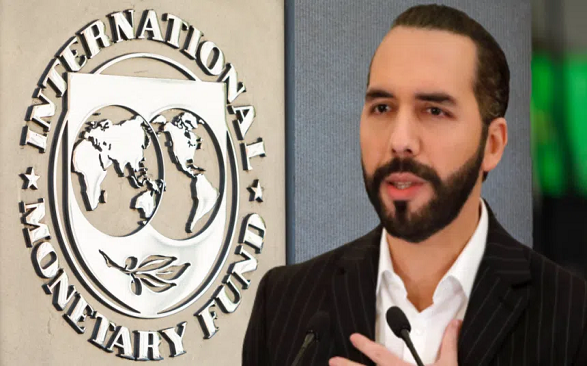by Jude Ayua
Salvadoran authorities and an International Monetary Fund (IMF) staff team reached “staff-level” agreement mid-December 2024 for a US$ 1.4 billion loan program. If the details of IMF’s reforms are anything to go by, bitcoin (BTC) would have been robbed of its legal tender status in El Salvador. However, BTC will remain a voluntary medium of payment for private users and limited for public institutions.
The IMF staff team led by Luis Cubeddu and Raphael Espinoza, Mission Chief for El Salvador, issued a statement on 18 December following deliberations in San Salvador from 5-14 December. The program, a 40-month arrangement under the IMF’s Extended Fund Facility (EFF), aims to support El Salvador’s economic reforms. The staff team submitted the agreement to the IMF Board to consider the program for approval by early-February, subject to the implementation of agreed prior actions.
“The program is also expected to catalyze additional financial support from the World Bank, the Inter-American Development Bank, and other regional development banks … for a combined overall financing package of over US$ 3.5 billion over the program period,” according to the statement.
Read also: El Salvador to “scale down” its Bitcoin Law for IMF loan.
The agreement introduces reforms necessary to regaining investor confidence and unlocking El Salvador’s economic growth.
Bitcoin law review
A major reform the IMF proposed as a condition for El Salvador’s access to the program is the scaling down of its bitcoin law. The IMF’s statement reported that the agreement will diminish the potential risks of El Salvador’s Bitcoin law significantly in line with IMF’s policies. The reforms are as follows:
- El Salvador will make the private sector’s acceptance of bitcoin (BTC) voluntary.
- The public sector will have limited involvement with BTC. This implies that government agencies’ and state-controlled entities’ participation in economic transactions involving BTC will be subject to well-defined and narrow circumstances.
- Citizens and businesses in El Salvador will pay taxes in U.S. dollars and not in BTC.
- The government will reduce its participation in the crypto e-wallet (Chivo).
El Salvador has accepted these reforms. A $1.4billion IMF loan has dropped on the country’s lap.
The reforms aim to achieve: “Transparency, regulation, and supervision of digital assets will be enhanced to safeguard financial stability, consumer and investor protection, and financial integrity,” the statement noted.
Other reforms are aimed at achieving “transparency, governance, and resilience.” To achieve these, “early reforms will focus on establishing a strong anti-corruption framework and improving the Anti-Money Laundering and Counter-Financial Terrorism (AML/CFT)” according to the statement.
Read also: Read also: IMF wants El Salvador to review its Bitcoin Law to get funding.
Jude Ayua is a policy analyst at CAB. A lawyer, Jude is an associate at Infusion Lawyers where he is a member of the Blockchain & Virtual Assets Group. He is also a member of the Policy & Regulations Committee of the Stakeholders in Blockchain Technology Association of Nigeria (SiBAN). Jude reports and writes on crypto policy and regulations. jude@infusionlawyers.com
Discover more from Crypto Asset Buyer
Subscribe to get the latest posts sent to your email.





